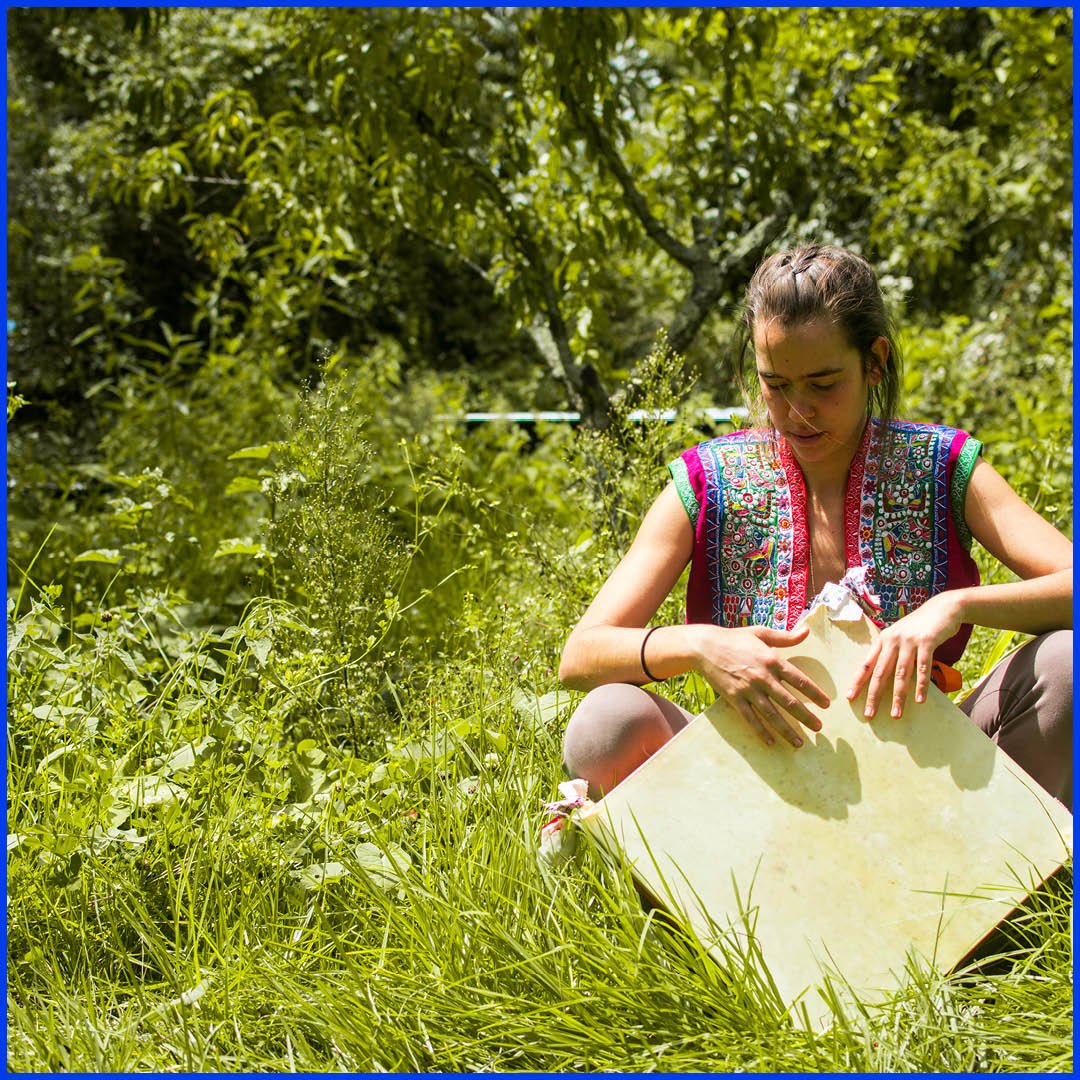-

MARIANA ROOT
Mariana Root nasceu no norte de Portugal onde cresceu entre tias, avó, mãe e irmãs, todas elas “cantadeiras” e de nome Rute, que deu origem ao nome artístico da cantora, Root (em inglês Mariana Root was born in the north of Portugal where she grew up with her aunts, one of her grandmothers, her mother and her sisters, all of them “cantadeiras” (a Portuguese expression to describe women who like to sing and do so frequently) and many of them called Rute, which gave rise to the singer's artistic name, Root.
It is her roots and the wealth of old traditions that keep inspiring her, and it is in co-creating with the present that she finds and explores the nature of her sound.
With a degree in jazz vocals, it was later in the Americas that she had the opportunity to witness different rituals, ceremonies and offerings performed by indigenous people from the Amazon and the Andean mountains. While maintaining their own native musical traditions, they transmitted to the singer an ancestral form of singing that is deeply rooted in a state of human integration with nature.
Back in Portugal, she began her relationship with Portuguese ancestry in the Beira region, through the melodies of the “adufeiras” of Monsanto and Paúl with whom she lived and experienced the art of Adufe.
With four original albums, Mariana’s most recent one is entitled “Lusitana”. Including the special participation of Adufeiras from Casa do Povo do Paúl and traditional percussions played by the singer herself, the notoriously Portuguese vocals are an unmistakable trait of this album.
-

NÃO ÉS TU SOU EU
Não És Tu Sou Eu (It’s Not You It’s Me) is a trio dedicated to the re-interpretation of traditional Portuguese music in a dance context, consisting of Inês Lopes, João Godinho and Pedro Calado. The presented repertoire is the result of their in-depth research on a vast collection of songbooks of traditional Portuguese music. They propose a “Novo Baile Português” (a New Portuguese Ball), recognising and promoting the choreographic styles associated with the national repertoire.
